Gollancz Editors’ Favourite Masterworks: Marcus
As we move into the festive period and its seasonal agony of indecision over what gifts to give our loved ones, we thought we’d offer to help by inviting the Gollancz editorial team to tell us about their favourite SF or Fantasy Masterworks. First up: Marcus Gipps . . .
Riddley Walker is one of my two desert island books (the other is Mother London, by Michael Moorcock). There’s something about the rich strangeness of Hoban’s language that repays every reread. It takes a few pages to get back into the swing of the broken down English that his character speaks/writes in, but once my mind resets itself I’m off, every time, caught up again in this post-nuclear England and the journey of young Riddley. It’s a dark book at times, and occasionally a heartbreaking one, but there’s a core of warmth and humanity to it that defies all the grimness. And every time I read it I find something else to admire – this is such a densely-packed book, full of myth and folklore and history. There are guides out there to be found, who will perhaps expand your exploration of this remarkable creation, but if you’ve never read it before I advise you to jump straight in, tune out all distractions, and retune your language centre to the joy and beauty that is Riddley Walker.
 What more needs to be said about The Hitchhiker’s Guide to the Galaxy? We’ve read it all before, or seen it, or listened to it, or played the game, or used the towel. There’s a reason why it’s reputation stands so high – the book is a little masterpiece, and why familiarity can perhaps reduce its impact and humour, it is still, for me, as comforting and welcoming a read as I can imagine. I recently read Jem Roberts’ lovely authorised biography of Douglas Adams, The Frood (out now in HB), and although the bio was great and fascinating and heartbreaking, the cherry on the cake was the extracts and deleted scenes he’d found in Douglas’s archive. As with all things of such nature, generally we can see why they didn’t make it to the page, but there’s a delight in reading new HHGTTG material, one I thought would never happen again.
What more needs to be said about The Hitchhiker’s Guide to the Galaxy? We’ve read it all before, or seen it, or listened to it, or played the game, or used the towel. There’s a reason why it’s reputation stands so high – the book is a little masterpiece, and why familiarity can perhaps reduce its impact and humour, it is still, for me, as comforting and welcoming a read as I can imagine. I recently read Jem Roberts’ lovely authorised biography of Douglas Adams, The Frood (out now in HB), and although the bio was great and fascinating and heartbreaking, the cherry on the cake was the extracts and deleted scenes he’d found in Douglas’s archive. As with all things of such nature, generally we can see why they didn’t make it to the page, but there’s a delight in reading new HHGTTG material, one I thought would never happen again.
Arslan was my first job for Gollancz – a bit of freelance proofreading to try me out. I’m glad I got that job for two reasons – one, because I suspect it ended up playing a part in me getting my current job but two, because it introduced me to a book I perhaps would never have otherwise read. Arslan is a difficult book to read or discuss – there are some remarkably difficult scenes and events contained within, as Adam Roberts discusses brilliantly in his introduction to our edition – but there is also a strange richness to this tale of a fallen America and the brutal warlord who invades and chooses one small town for his base. We don’t really like any of the characters, I think – we can admire some and respect others, but no-one is good or, for that matter, particularly heroic. Life is hard and everyone has to do what they can to survive. Perhaps the science and prediction of how the world might end aren’t the best, but that doesn’t matter, because what this is is a very specific look at the behaviours of a conquered people. It’s brutal and hard, but well worth a read.

